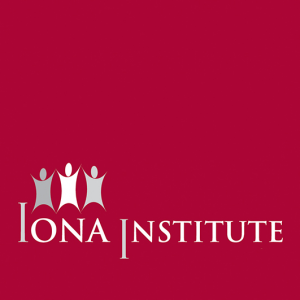
By Ann Marie Foley - 27 July, 2016

“Another attack on the rights of denominational schools” is how the Iona Institute described a draft proposal by the National Council for Curriculum and Assessment (NCCA).
The proposal aims to reduce the two and a half hours allocated by primary schools each week to the teaching of religion.
“This is another example of the State showing that it has little or no appreciation for the role and place of denominational education in Irish society, or of the importance many parents place on denominational education,” said spokesman Dr Tom Finegan.
“It is at least as important that children leave school with well-formed moral characters and a fulfilling relationship with God, as that they leave with a good knowledge of Irish, or art or music or maths,” he stated.
“For Christians, the greatest of all moral teachers is Jesus Christ, and it makes perfect sense that Christian schools, which are at the service of Christians parents, should play a big part in telling children who Jesus is and what it is to follow him and be part of his Church community,” Dr Finegan added.
![]()
The proposal is a response to the very busy primary school curriculum.
The NCCA wants more time to be spent teaching maths and Irish and English as well as a proposed new course called Education about Religion, Beliefs and Ethics (ERB and Ethics).
Dr Tom Finegan said that it appears that the thinking behind the proposal is that the time spent teaching RE is compromising academic standards in schools.
However he pointed out that Catholic primary schools in Northern Ireland also allocate around two and a half hours per week to RE and those schools regularly outperform their State counterparts.
Northern Ireland primary schools also regularly appear near the top of international league tables along with Finland.
Similarly Scottish Catholic schools allocate two and a half hours per week to RE and those schools also do well academically despite the fact that they are often located in more disadvantaged areas.
Dr Finegan concluded: “The NCCA should leave it up to schools and their patron bodies to decide whether or not to allocate two and a half hours per week to RE, otherwise it will be unjustly interfering with parental rights and the rights of all those involved in supporting denominational schools.”
Last December 2015, when the issue of teaching religion in schools arose, Fr Tom Deenihan, General Secretary of the Catholic Primary School Management Association (CPSMA), said that it makes no sense for the State to compel schools of no religious patronage, ethos or denomination, to teach religious education.
“However, there are schools with religious patrons be they Catholic or other Christian denomination, or of another faith. These schools are sought by a significant number of parents for their children, and religious education is an important part of the schools’ ethos or characteristic spirit. These schools wish to continue to teach religious education in accordance with their ethos,” he explained
He and CPSMA feared that there was an intention to remove denominational ethos from the education system, in other words patronage would make no difference.
Also in December 2015 in a statement the Bishops’ Council for Education stated that faith schools exist because many parents wish to have their children educated in accordance with their religious convictions.
“If the ethos of faith schools is undermined then the rights of such parents are compromised,” they stated.
“It is not the role of the Minister to determine or interfere with the ethos of faith schools. Legal advice available to the Department of Education & Skills confirms this.”
“In our view the autonomy of schools, with regard to religious education and admissions policies, should be enhanced rather than weakened,” they added.
They described religious education as playing a key role in all faith schools. In Catholic schools religious education is based on a “holistic vision of the human person” with respect for people of different faiths or of none. This is expressed in a commitment to learning about faiths and engaging in interreligious dialogue in age appropriate ways.